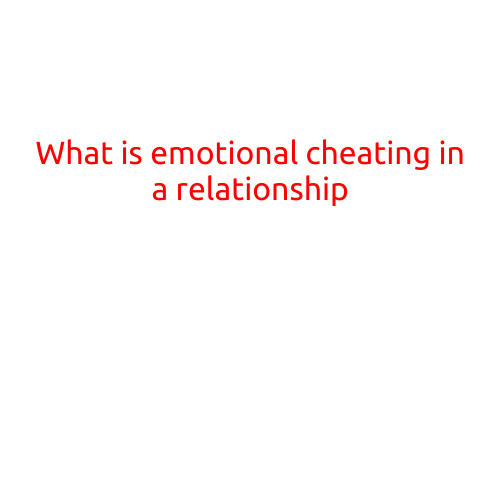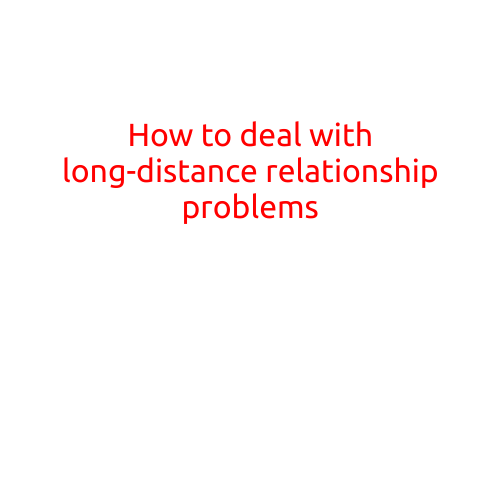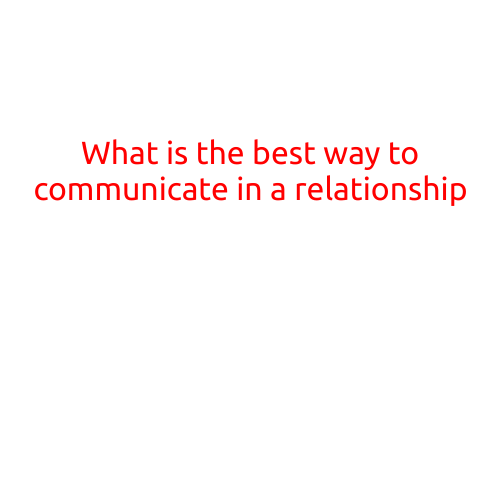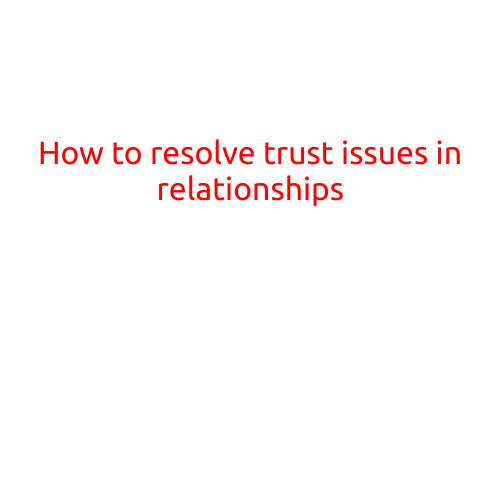
What is Emotional Cheating in a Relationship?
Emotional cheating is a common yet often misunderstood concept in the world of relationships. While physical infidelity is considered a serious betrayal, emotional infidelity can be just as damaging and hurtful to a partner. In this article, we’ll explore what emotional cheating is, its signs, and how to address it in your relationship.
What is Emotional Cheating?
Emotional cheating occurs when one partner forms an emotional connection with someone else, often outside of their primary relationship. This can manifest in various ways, including:
- Fantasizing about someone else: Daydreaming about a person, imagining a romance, or idealizing a relationship with someone other than your partner.
- Forming emotional bonds: Developing deep emotions, such as intimacy, trust, or affection, with someone else.
- Sharing secrets or personal information: Disclosing confidential or sensitive information to someone else, blurring the boundaries of your primary relationship.
- Seeking validation or attention: Craving emotional validation, support, or attention from someone else, often through social media, texting, or meeting in person.
Signs of Emotional Cheating
- Increased secrecy: Your partner becomes secretive about their whereabouts, phone activity, or online behavior.
- Defensiveness: Your partner becomes upset or defensive when you ask about their actions or connections with others.
- Changes in behavior: Your partner starts to exhibit sudden changes in behavior, such as mood swings, irritability, or a sudden interest in an unrelated topic.
- Withdrawal: Your partner becomes distant or withdrawn, showing less interest in the relationship or interactions with you.
- Fake busy-ness: Your partner always seems to be busy or unavailable, making it difficult to connect or discuss important issues.
Why Emotional Cheating is Hurtful
Emotional cheating can be just as painful as physical infidelity because it involves a betrayal of trust and can erode the foundation of your relationship. It can also lead to feelings of:
- Insecurity: Doubting your partner’s commitment and feeling uncertain about their love for you.
- Anxiety: Worrying about the status of your relationship and the potential for emotional infidelity to escalate to physical infidelity.
- Jealousy: Feeling envious of the attention or connection your partner is receiving from someone else.
How to Address Emotional Cheating
- Open communication: Start a conversation with your partner, expressing your concerns and feelings about their behavior.
- Address underlying issues: Identify and address any underlying issues, such as feelings of loneliness, boredom, or insecurity, that may have contributed to emotional cheating.
- Set boundaries: Establish clear boundaries and expectations for your relationship, including limits on social media use, phone contact, and interactions with others.
- Seek therapy: Consider couples therapy to work through issues and strengthen your relationship.
- Reflect on your own actions: Take this opportunity to reflect on your own actions and ensure you’re not engaging in emotional cheating behaviors, such as excessive social media use or flirting with others.
Conclusion
Emotional cheating is a serious issue that can damage the trust and intimacy in a relationship. By understanding the signs and consequences of emotional cheating, you can better navigate these complex situations and work towards healing and strengthening your relationship. Remember, open communication and addressing underlying issues are crucial in recovering from emotional infidelity and building a stronger, more resilient bond with your partner.





